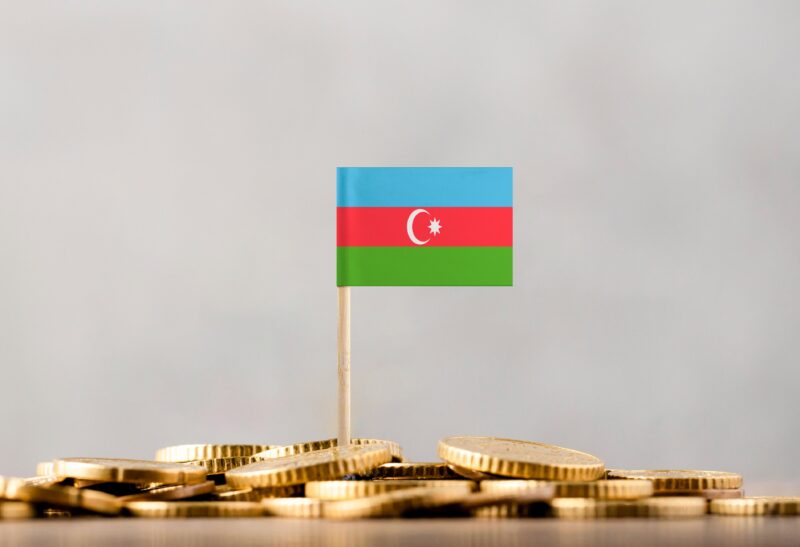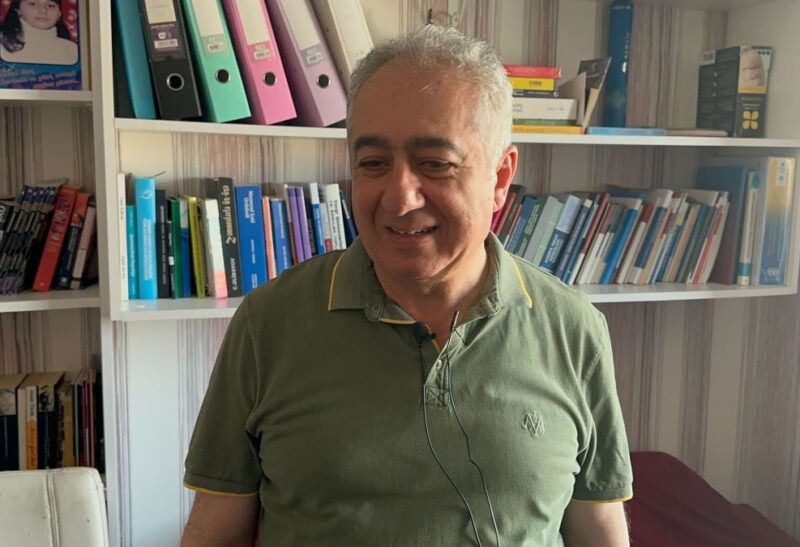

Meydan TV presents a series of articles on the bidding processes of the Azerbaijani armed forces, exposing corruption in the military. This is the first article in the series.
“Over the last ten years our military expenses have increased twenty-fold, and our expenses for the Army and the Armed Forces are now twice the size of Armenia’s whole state budget.”
— President Ilham Aliyev.
In 2014 the budget of the Armed Forces grew by 57 million AZN (approximately 58.6 millions Euros), to 2.968 billion AZN (approximately 3.05 billion Euros).
However, the increased spending has had little impact on the well-being of Azerbaijani servicemen, for example in terms of nutrition quotas and requirements. An ex-conscript who returned from military service in June 2014, Elchin Alizada, said that during his time in the army, soldiers often ate poor quality food. “We were mostly served canned food which was sometimes mixed with cooked meals. On duty service, butter was the only portion which was doubled. For the most part, our food was bad.”
Another soldier who served on the front line in Fuzuli district said that sometimes they would not even receive basic rations. He recalls, “Our military base was in Harami plain, and the food there was terrible. During some winter months we would not even get lunch”.
Reserve Colonel-Lieutenant Uzeyir Jafarov says these unregulated actions are the result of corruption. “Lawlessness in the army should be addressed as a complex issue. Many things must be taken into consideration when evaluating the current situation, from the psychological state of commanders to the issue of corruption.. There is an accountability gap with regard to the deaths of our soldiers in non-combat situations, corruption, and violations of regulations.”
According to “Doktrina” Journalists’ Center for Military Investigations, a total of 19 military servicemen in Azerbaijan died in non-combat situations between January and June 2014.
Purchases without tenders
Private Ahmad, serving at the military base X of the Ministry of Defence comes for breakfast. White bread, butter, jam, egg, milk and tea are all waiting for him on the table. Unless there is an inspection, this spread is not available at the majority of military bases, as testified by soldiers. So how do things work in reality?
According to numerous interviews, soldiers serving under the Internal Troops (IT) and the Border Troops (BT) are, relatively speaking, better fed than soldiers serving at the Ministry of Defence (MD). Despite conflicting views on the quality of food, both IT and BT workers say there is always something to eat.
Legally, information on soldier nutrition should be available to the public via the website of the State Procurement Agency; however the Ministry of Defence has not responded to our inquiries. The law requires that all purchases over 50,000 AZN must be implemented via an open bidding procedure, which should be organized by the State Procurement Agency and the results published on its website. However, very little information is available in the registry of the State Procurement Agency on soldiers’ rations.
Amongst the available list of bids, there are some reports on the BT’s food requests, but the MD and IT are less transparent. There are missing results for a number of goods purchased in 2012-2014 by the Armed Forces through this system. So if we study the list of conducted tenders and foods allocated as the daily ration by the Armed Forces in accordance with the law adopted by the Cabinet of Ministers (in force as of January 1, 2013), what can it show us?
Let us imagine a situation whereby all the purchasing is implemented via bidding and the results are published, as required by law:
Tea
– Given the absence of information in the registry on bidding for tea, the results suggest that the soldiers of the BT drink tea, while the soldiers serving under the MD and the IT do not. But the Armed Forces servicemen report that they drink tea every day.
Cheese
– Information on the purchase of cheese worth 48,120 AZN by the MD in 2012 indicates that IT and BT soldiers did not eat cheese that year. In 2013 it was the other way round, with the IT soldiers eating cheese, but not the MD and BT. However, according to the soldiers, they only usually get cheese on holidays. The situation is different at the military base of MD in Baku and big cities where soldiers are provided with cheese slightly more often.
Fish
– In 2012 and 2013 none of the sectors of the military – army, IT, BT – conducted biddings to purchase fish, yet, the servicemen of the Air Force of the Defence Ministry and Marine Forces, assert that they were provided with fish; Ilkin Gambar, who served in the military base under the Ministry of Defence says they were served tins of mackerel cans every two days (one can between two soldiers).
Eggs
– In 2012 the MD, IT and BT all conducted tenders to purchase eggs. However, for some reason, the Ministry of Defence forgot to carry out such tender in 2013. Despite this, soldiers serving at the military bases of MD said they were provided with eggs on holidays and some Sundays.
Freshly squeezed fruit juices
– Only the ITs are provided with legally purchased fresh juices. The bidding registry has no information on the MD and the BTs being provided with juice but the servicemen we talked to stated they were given 100 grams of apple juice every day.
Jam
– The servicemen we talked to said they were not provided with jam throughout their service and the tender registry does not have any information in 2012 either.. In 2013 the tender on jam was conducted only by the ITs.
Dried fruit
– In 2012 the tender on this product was conducted only by the BTs, and in 2013 was undertaken by both the ITs and BTs. The MD have not informed the State Procurement Agency of any tender.
Meat
– all sections conducted tenders in 2012-2013 on purchase of “high quality meat”; however this standard of “quality” has come into question after a number of complaints by soldiers.
One of the soldiers who served in the ITs said that he tried to avoid meat dishes as much as he could during his service. “We tried to feed ourselves with food brought to us by our families once every two weeks or month. I often ate bread as the meat dishes served at the base had a distinctive smell. The only time we received good food was when the military base was being inspected.” Soldiers serving on the front line have also agreed as to the poor quality of meat received.
According to the nutrition rations approved by the Cabinet of Ministers, military personnel serving on the front lines 1,000-1,500 meters above the sea level are entitled to additional nutrition quota and similarly with the servicemen serving at airfields, polygons and those in charge of maintenance of flight machines. The soldiers serving in “hardship” territories are also entitled to servings of chocolate in addition to their nutrition rations. There is information on the state registry indicating that the Defence Ministry did indeed purchase chocolate.
Economic expert Natig Jafarli says the law requires that all products and purchase details are entered into the registry, with all of the information published on the website. Failing to do so, therefore, entails non-compliance with the law.
However, military expert Uzeyir Jafarov argues that despite a lack or nonexistence of information on the purchased goods, the Ministry of Defence is fully provided with food products: “Although they do not appear in the tender lists, the army has tea, cheese, cans and other food products.”
Conscripts and officers of the Azerbaijani Armed Forces also testify to food purchases for the army; but if food is actually purchased, why is it not shown in the available tender lists? Do the supply companies prefer doing business without tenders or is it as a result of opaque tenders? These questions will be explored in the next article.



